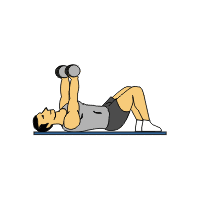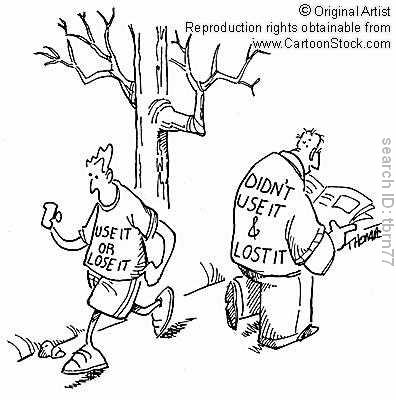I feel the best assessment comes in the form of reflection. As I began my career as a physical education teacher I approached it with a lot of teacher directed activities. I thought what kind of a teacher I was would be reflected in my students being on task and looking productive and organized. Earning my masters degree in technology integration has changed my focus a bit.
As I evaluate my GAME plan this week, I can see that I am making strides towards meeting the National Educational Standards of integrating technology because I am more aware of it than ever. I have made more connections in my building lately with technology teachers and media specialists in order to make things happen in my physical education setting.
Recently, my coursework has allowed me to take a closer look at problem-based learning. This is a teaching method that I struggle to integrate because I sometimes don't want to give up control. Dr. Ertmer discusses this in our resources and I can now see that I need to make some changes all around to improve my teaching. I believe that a problem-based learning approach may be the answer to how to improve upon my GAME plan goals:
1. Facilitate and Inspire Student Learning and Creativity
2. Design and Develop Digital-Age Learning Experiences and Assessments
Still tying in my recent integration of flip video cameras, I can see how a PBL approach would inspire student creativity and learning.
As I said earlier, I believe sometimes the best form of evaluation is reflection. Since integrating more technology my students seem more engaged and generally more enthusiastic about class. Some students who may feel inhibited by their physical ability seem more confident to be contributing to my classroom in other ways. Some that lack coordination have been able to show off other skills with videotaping and editing in our weightlifting class.
Now that I have integrated more technology, I need to further work on my assessments. Reflections from my students and feedback seems to be a great starting point for now though.
Joel Peterson
Laureate Education, Inc. (Executive Producer). (2009). Spotlight on Technology: Problem-Based Learning, Part 1. [Educational video]. Baltimore: Author.


Joel,
ReplyDeleteI think that your evaluation is right on track with the premises of problem based learning
1. collaboration & interdependence
2 adaptations
3. scaffolding
Giving all students the chance to excel builds not only self-esteem but comradely. These are tools students need that can not be taught but must be experienced to develop.
Julie
Julie,
ReplyDeleteThanks. I guess I wasn't envisioning what I was doing in a large scale like that, but I appreciate your feedback. Did you have any suggestions for better assessments other than reflection?
Joel
Joel,
ReplyDeleteHave you considered using an online journal/diary for your students to record their data and findings? I found a free one at http://www.my-diary.org/ You could monitor student progress and still maintain a level of privacy that paper journal cannot.
Julie
Joel,
ReplyDeleteI completely agree with your last statement saying that incorporating different types of learning activities (in your case PBL's) will help those students who are a little less comfortable with the physical portion of phys. ed. a little more eager to get involved. I think that idea can be so true in all classrooms as I have seen so many of my students who normally do not try, are not interested, or who simply do not do anything normally really go all out when they have been more in charge of their own learning through projects like Problem-Based Learning.
On a side note, thanks Julie for the online diary link - looks great! It is definitely something I want to check out for my unit for this class (as I am creating activities for my next unit in my class). Thanks.
Casey